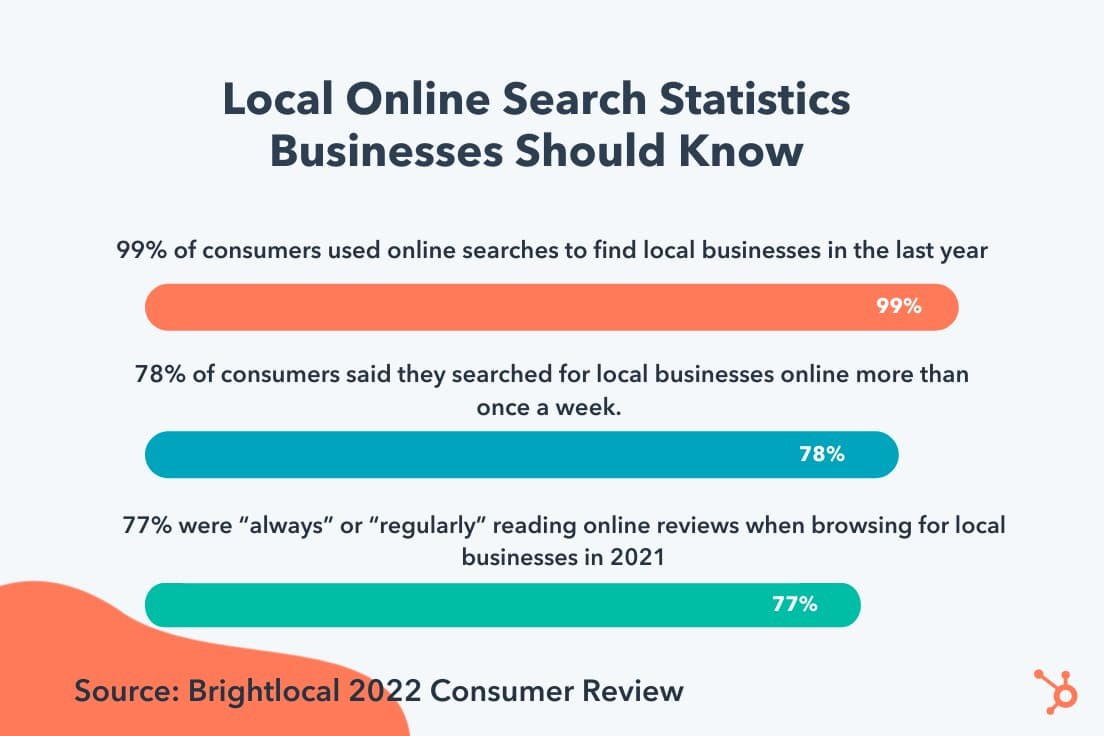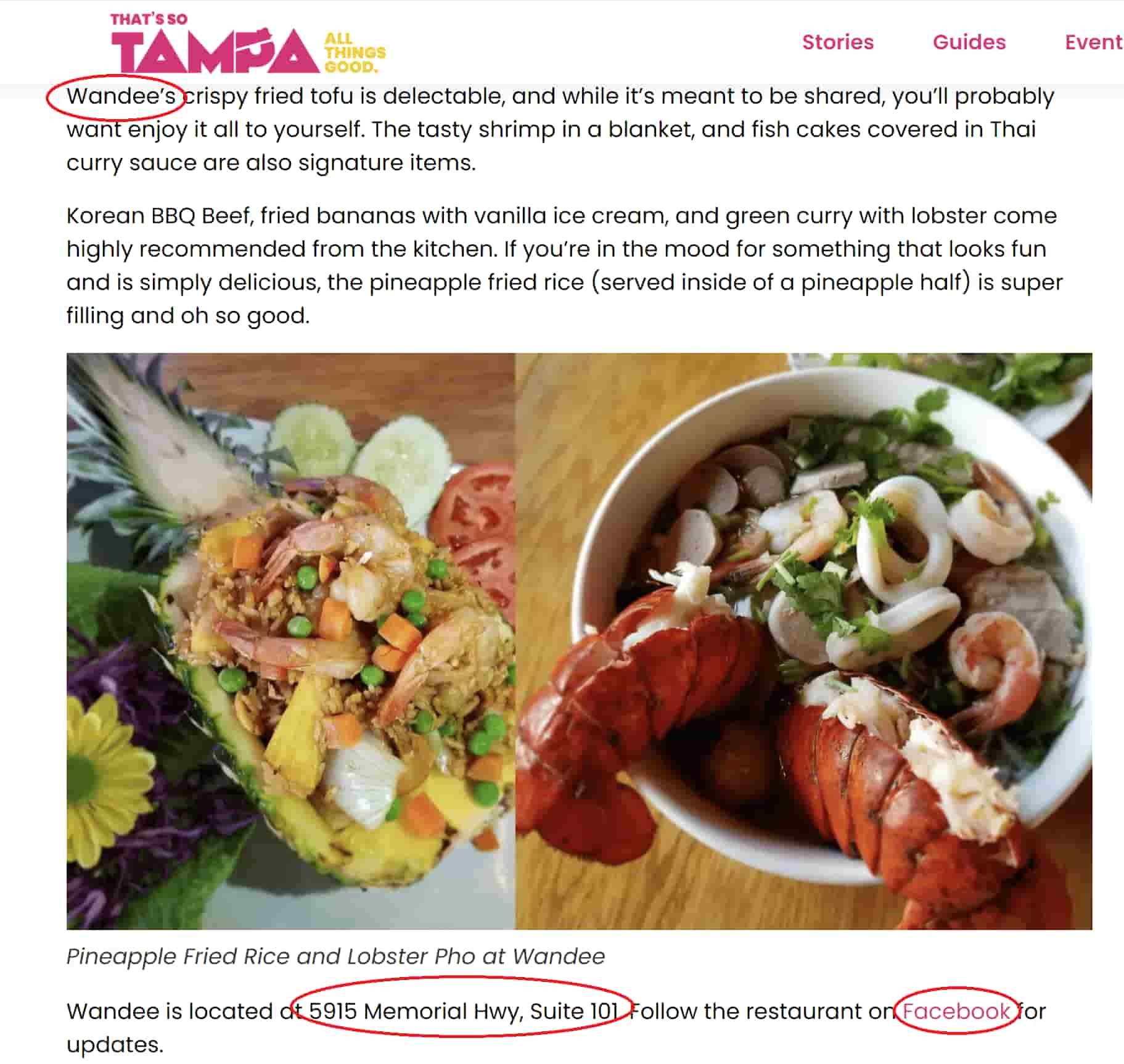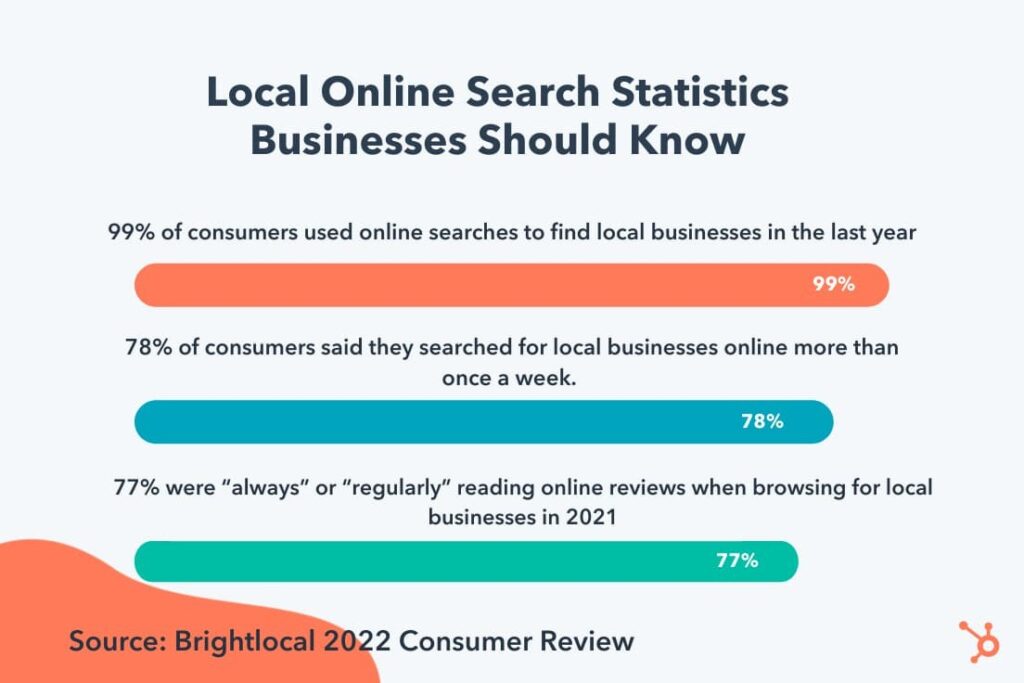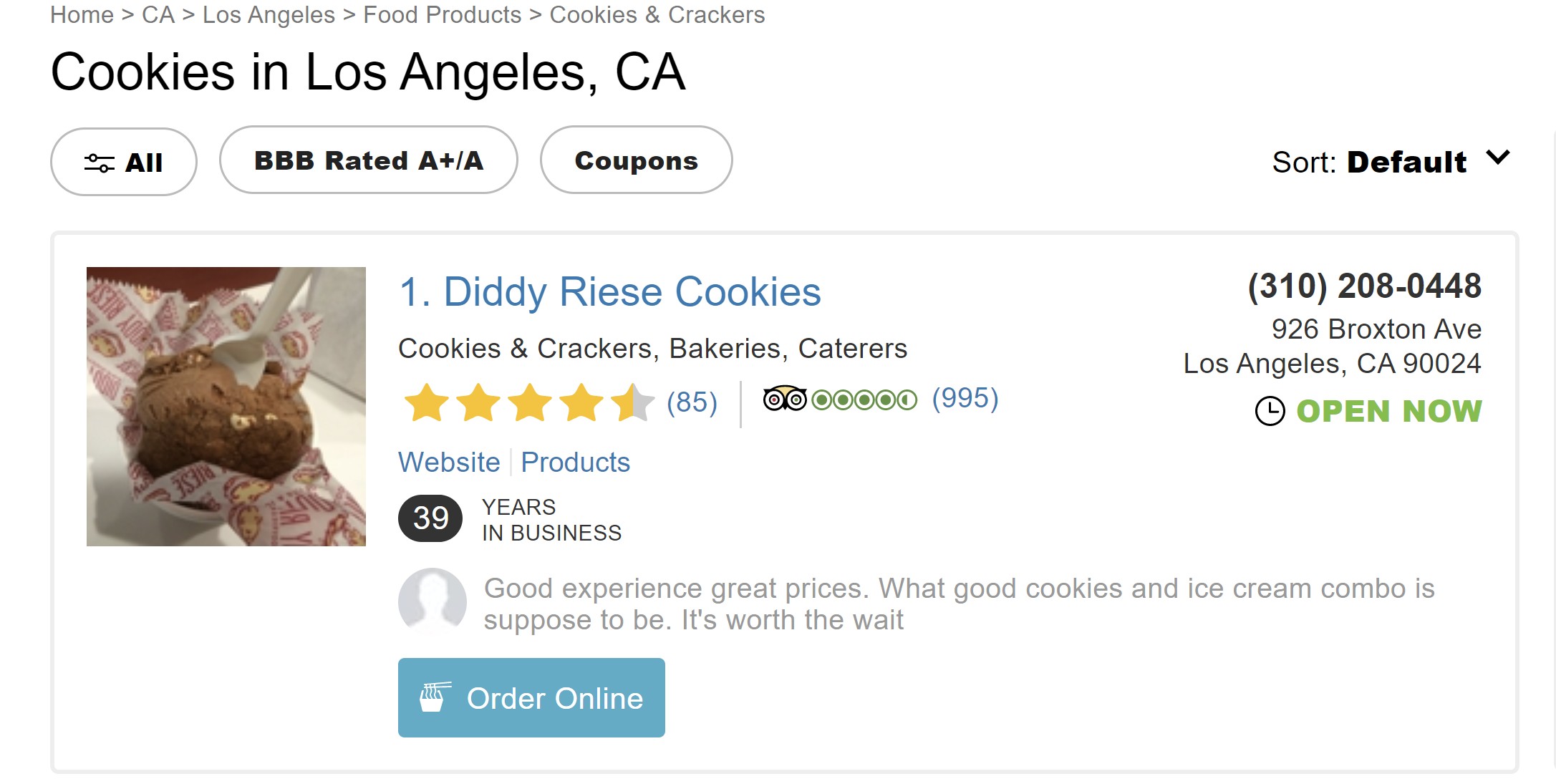If you’re not sure what local citations are, don’t worry — you’ve probably come across them while looking for a new service-provider, brand, or company.
For example, a few weeks ago, my sister came to town and wanted to take me out to dinner. She’s unfamiliar with the area’s local spots, so my sister took to Yelp to find a restaurant we’d both love. After scrolling through Yelp, she found a Black-owned restaurant called 7th + Grove that had rave reviews.
Yelp showed 7th + Grove’s address, so we knew it was in a busy part of town and could be packed the night we wanted to visit. Fortunately, the restaurant’s phone number was listed, so my sister called and made a reservation. In this scenario, the restaurant’s listed address and phone number were their local citations — and made our visit easy and organized.
Citations can help with local SEO because they allow search engines to verify the legitimacy of your business. If the same name, address, and contact information for your brand are easily accessible throughout the web, search engines can trust that your business exists and is truthful about the service it provides.
Benefits of Local Citations
Local online searches have proven to be integral to a business’ success. According to BrightLocal’s 2022 Consumer Review survey, 99% of consumers used online searches to find local businesses in the last year. In that same survey, 78% of consumers said they searched for local businesses online more than once a week.

Types of Local Citations
There are several kinds of citations for local SEO that could work for your business. Let’s take a look at what they are:
Structured Citations
A structured citation is when the name, address, and phone number of your business are listed on relevant business directories or third party websites like Yelp or Yellow Pages. These third party websites already have huge databases of reliable information. For those reasons, search engines like Google trust them.
It’s helpful to have local citations in directories that are relevant to your industry. For more general directories, like Yellow Pages, you’ll want to ensure your business is listed in the appropriate category.
This makes it easier for Google to understand the service your business provides and connect you to your intended audience. If you’re not sure what directories you should target, our list of 50 local directories can help.
Below is an example of a structured citation on Yelp. I searched the word “cookies” and a local cookie shop was shown with its NAP listed and website linked, all in one directory.
Unstructured Citations
Unstructured citations also mention key information regarding your business, but unlike structured citations, the information isn’t grouped together. These kinds of citations are typically found on websites or apps that aren’t specifically designed as directories or business listings.
Common forms of unstructured local citations are online news articles, reviews, or blog posts that mention your business.
For example, the That’s So Tampa article below spotlights a new restaurant named Wandee opening in the city of Tampa, Florida. The name of the restaurant is mentioned in the first paragraph, while the location and link to its Facebook page (which contains contact information) is at the bottom.

There is data that supports the notion that unstructured citations, like online reviews, can be beneficial to businesses. According to a survey by Brightlocal, 77% of consumers were “always” or “regularly” reading online reviews when browsing for local businesses in 2021. This is up from 63% in 2020.
How to Build Citations for Local SEO in 4 Steps
If you want to pursue local citation building for your business, here are the simple steps you need to take:
1. Use data aggregators.
There are many online business directories that rely on business owners to submit their NAP directly to the website to be included. Business owners and marketers simply don’t have the time to submit their business’ NAP to thousands of sites. Fortunately, there is a simple way to navigate this: data aggregators.
Data aggregators are companies that collect information, including business NAPs, and distribute them to hundreds of websites, saving you time and effort.
According to CitationsCheck, the four most prominent data aggregators right now are Foursquare, Localeze, Factual, and Infogroup.
To boost your citations for local SEO, simply search for your business on these sites to see if it’s already featured. If you spot your business, claim it. If it’s not already on the site and you’ve ensured there are no duplicates, submit your business listing and its correct NAP to the website.
2. Submit your NAP to core sites.
The next step is to submit your NAP to core sites like Yellow Pages, Facebook, Yelp, Apple Maps, Yahoo Local, and Bing Places. Before submitting your NAP to these sites, make sure they are relevant to your business and worth the time and effort. This can be done by visiting the websites yourself and seeing what kinds of businesses are featured in the directories.
3. Submit your NAP to industry-specific and local websites.
After submitting to core websites, you’ll want to submit your information to directories that are specific to your kind of business. If you’re a home improvement contractor you’ll want your information on Angi, if you’re a realtor you should be on realtor.com, if you’re a hotel your information should be on TripAdvisor.
You’ll also want to be featured on hyper-local directories like the local Chamber of Commerce or other local business association websites.
3. Pursue unstructured local citations.
Unstructured citations for local SEO come in the form of blog posts, reviews, and articles about your business. Unstructured local citation building is a bit more difficult than structured local citation building because you’ll need someone to care enough about your business to write about it. But, don’t worry, it is far from impossible.
One way to pursue unstructured citations is to use Google to find supplier pages. Many businesses have supplier pages that link to the companies they supply or companies that supply them. Just make a list of suppliers and perform a site search to see if they already have mentions of your business on their website.
Another resource is HARO (Help A Reporter Out). HARO connects journalists with sources for news stories. It’s a free tool that works by sending you daily email alerts from journalists. You’ll answer the journalist’s questions or give a quote, they’ll usually cite you and your business in their upcoming article.
Local citations help your business gain visibility online, boost search engine rankings, and improve consumer discovery. Whether you’re pursuing unstructured or structured local citation building, it’s important to ensure your business’ name, address, and phone number are accurate and the same across all platforms.



